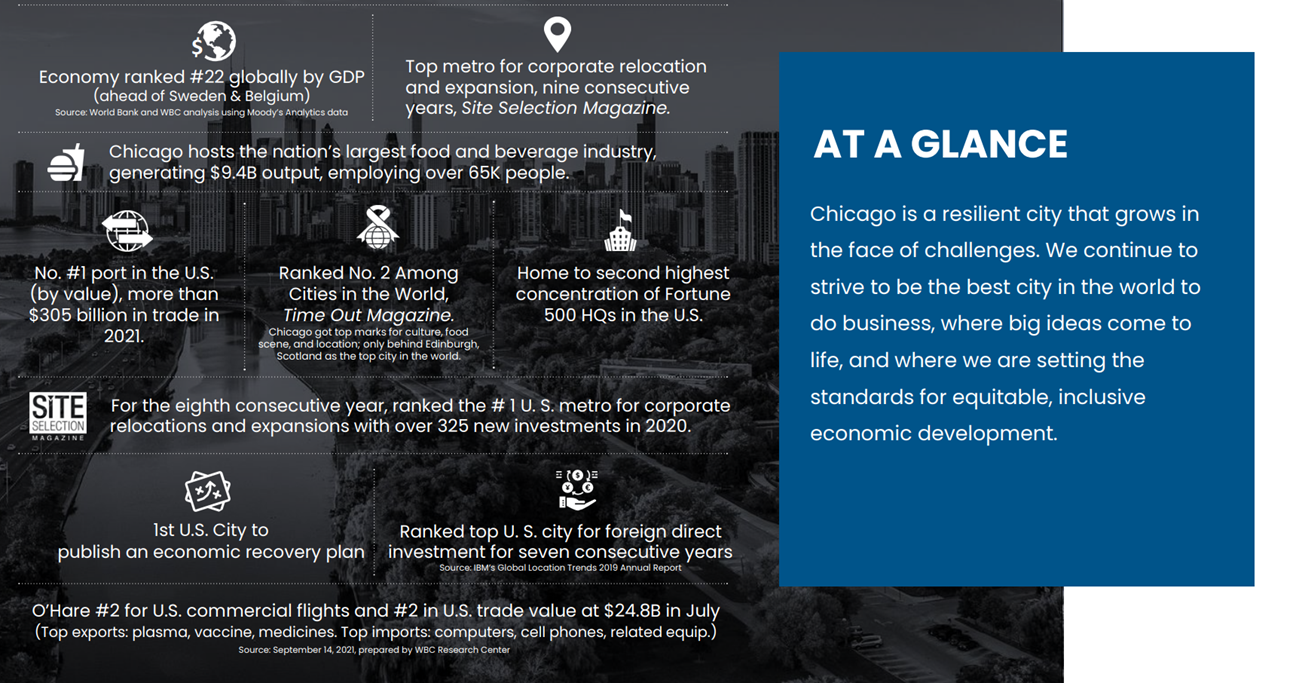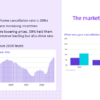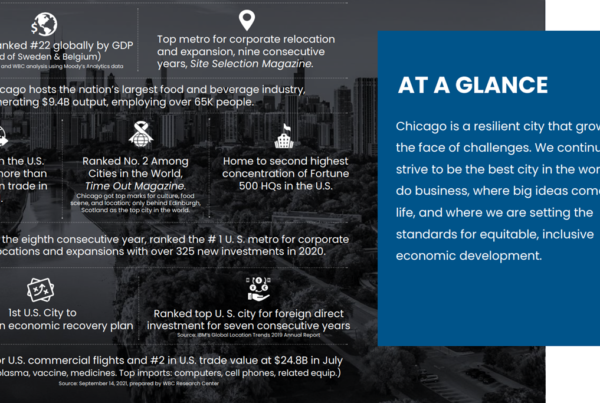Jerry Brown, Siegel & Callahan: His firm is currently in the reassessment triennial for the south and west suburbs. Tax rates tend to be off the charts in that area. Also, the City of Chicago gets reassessed in 2024 and people are nervous as it relates to the valuation of the downtown buildings. There is some concern they will take a massive hit in their values and a lot of the tax burden will be distributed to another asset class. A discussion was held on how his group assesses the value of a building vs. how the bank assesses the value of a building.
Jason Basso, The Farbman Group: Chasing a lot of deals and bidding on a lot of jobs but a lot of deals falling through. They have some multi-family partners that show some promise in 2024. Also representing some of the furniture manufacturers who are also their clients.
Ryan Jones, MillerKnoll: The biggest challenge in the last couple of years has been getting people to the office and as a result, the offices are not buying furniture. More hospitality and amenities are being developed for employees vs. the traditional office format to make it more inviting to come to the office vs. working from home. Offices are still going up, but less people are in them.
Matt Berry, John Buck Company: They have been chasing very opportunistic distressed office acquisitions over the last year expecting it would be a great time to buy. That theory has proven true, and even have a few unsolicited deals from lenders. A lot of the properties are from the late 80’s and early 90’s. The challenge has been that although many of the deals are solid, the feedback has been that they can’t put it in front of an investment committee because the insurance says the market hasn’t reached bottom yet and they should wait six more months. The new normal in 2024 is expected to be where any asset that doesn’t have strong walls and high occupancy is going to look similar to the deal, they struck in the previous year but didn’t close on. There are opportunities for bullish Chicago groups who want to wait and see what assets they want and strike deals with little equity risk. That’s bad for existing building owners and lenders but very good for investors who believe in the long-term value of office assets.
Karla Simmons, MillerKnoll: Her work with clients is globally and although it has been quiet in the U.S., their clients overseas have presented more opportunities. And, yes, they are seeing a lot of their clients’ real estate portfolios consolidating. They spend a lot of their time talking and learning with clients to determine what to do and how to make the real estate viable for their employees. Requiring people to come back to the office has been a test-driving process.
Dan Brennan, Laurie & Brennan, LLP: Their firm does transactional and dispute work. On the transactional side, developments (office/multi-family) are happening in Arizona, Texas, and Florida but not as much in Chicago. And when that pipeline starts to dry up, dispute work tends to keep them busy. Typically, you don’t chase the nickels and dimes but when the pipeline is dry, the nickels and dimes are attractive. Another highlight in the dispute world is with case law. Historically, much of the case law was favorable to the insurers until recently. The Commercial General Liability (CGL) policy is now favoring and supporting the real estate owners which is good news for them and their clients.
Donna Salvatore, Megalytics: Seeing a resurgence of large food and beverage projects on Michigan Ave, longer lease terms, and an increase in the quality of the deals. Other trends include more healthcare specialty businesses entering the office space versus the large hospital campuses as well as more data centers and cold storage facilities.
Greg Aikens, The Farbman Group: Most of their properties are in the downtown/loop area of which many are Class B historical buildings that prospective tenants are assessing seriously. Will be interesting to follow this trend along with efforts to enhance State Street and other areas of the city to revitalize the business districts.
Hart Passman, Elrod Friedman, LLP: In the City, with a new head of development, it will be interesting to see what actions the Mayor takes. It will be important as without any push it doesn’t help with issues such as skittish investors to give them a reason to rethink whatever assumptions they may have. That stated, what is happening in the city boundaries doesn’t mean it is happening in the suburban areas. Seeing several cities and villages open for business and hungry for development and opportunities.
Michael Keck, MillerKnoll: Most every one of their clients is reevaluating their real estate needs and, in most cases, they are going to reduce their square footage and/or sell/lease some of their property. But even with a smaller space, you have to give people a reason to come back. And this challenge is sometimes a reflection of a lack of leadership. MillerKnoll is trying to help customers ask the question, “Don’t ask what they want, but what they want to get done?” What is the goal and end result of putting people into the room. It’s a unique opportunity (since coming out of Covid) for the interior design business which will ultimately support the commercial real estate market too.
Rick Rembusch, R2 Ventures LLC: Seeing AI and the impact on the footprints around the globe for data centers. Players like Microsoft, Google and Apple are ramping up resources to get footprints everywhere for their long-term strategies. Interesting to see how some of the labor shortage shows macroeconomically, and moving people into different roles will be interesting to see how everything evolves. Supply Chain is still being watched; not sure if things will get better or worse.
Ian Hoffenberg, Law Office of Ian B. Hoffenberg LLC: Doing a lot of work with restaurants, retail, multi-family up to about $10 million. In his opinion, this is the worst market in terms of commercial real estate. In 2008 went from closing 5-6 deals a month and in 2009 they were doing 3-4 deals a day because the values were so low. Now he is seeing the values have crashed, the cap rates are way down, yet people don’t want to buy or sell. He is busy but the work is mostly workout type transactions.
Kristina Bonesteel, Siegel & Callahan: In Illinois they do not do personal property, however, they do a lot of that type of work in other states so can do both personal and real property in other states.
Mark Myers, Walker & Dunlop: Seeing that it is tough to get deals done; volume down 60% from last year. If thinking about investment allocations and reasons to invest, senior housing is a market to consider. The number of 75 and older is going up in the next 10-15 years. They make great residents, they don’t destroy the property, and they have cash. There is also a great need for affordable housing which could lean into reinventing some of the unused commercial space(s). Until the banks release credit, the industry is handicapped to move forward with new deals.






Recent Comments